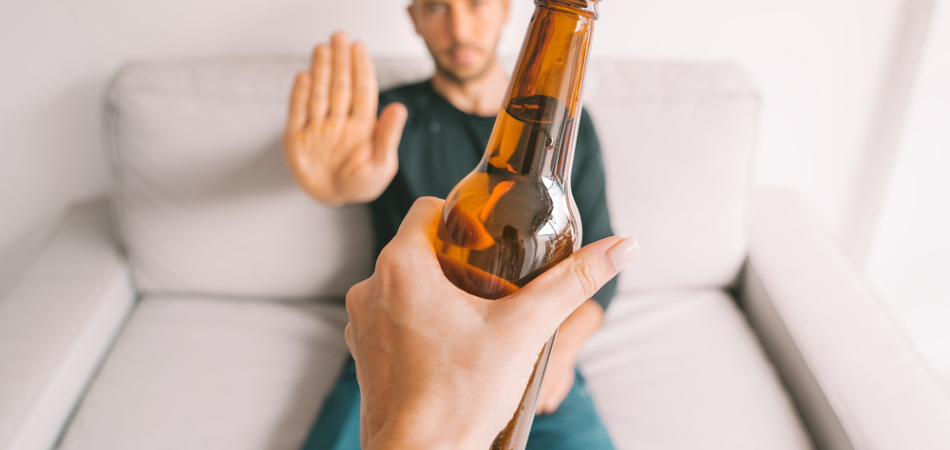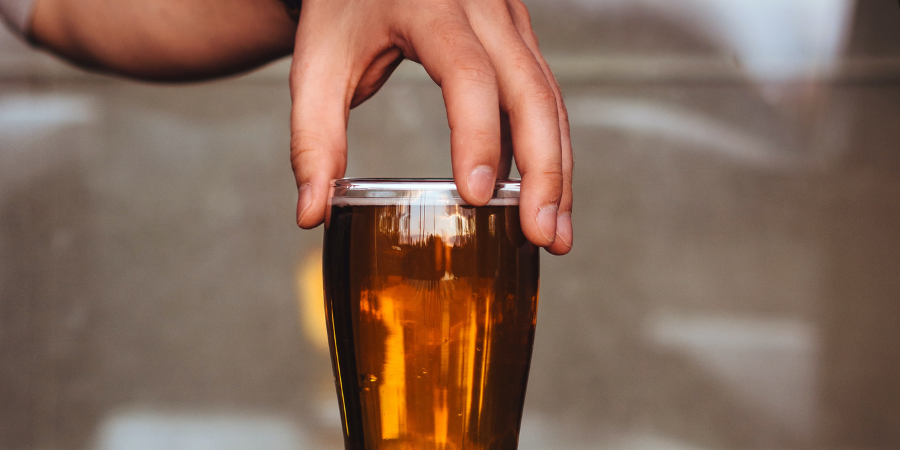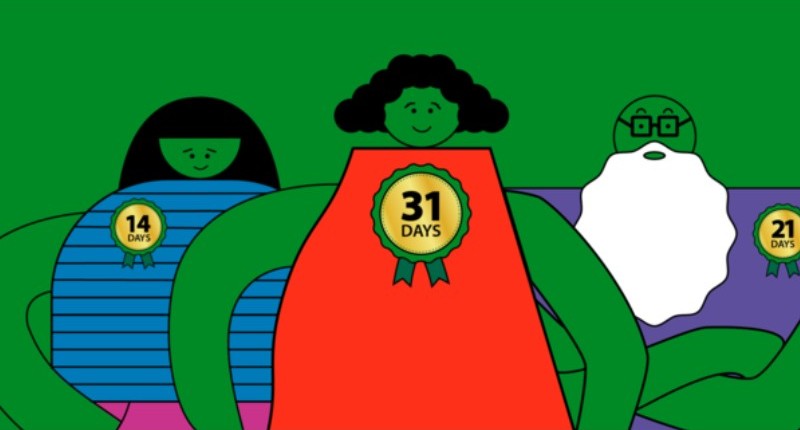Alcoholism is an ever-growing problem that can affect not only the person with the addiction but those closest to them as well. The impact that alcoholism can have on friends and family is enormous, and it can put a lot of strain on relationships. For those living with an alcoholic, whether it be a partner, parent or sibling, it can be enormously difficult to know where to turn.
On this page, we will address some of the key issues that alcoholism can cause and give some much-needed advice to all those who share a home with a loved one who has an alcohol problem.
Living with an alcoholic
Sharing a home with family members who have an alcohol use disorder (AUD) can be very difficult, but unfortunately, it is a situation that is all too common. Our data at UKAT shows that there are more than ten million alcohol-related doctor visits in the UK each year. When you consider how many people don’t visit the doctor, the extent of the problem becomes all too clear.
Alcohol abuse is one of the main factors behind instances of domestic violence and other issues within families. Alcohol is a powerful depressant, and so its effects on heavy drinkers can be significant. One study led by the University of Oxford found that men with alcohol use disorders were six times more likely to commit violence against their partner or their children. Substance use disorders like alcoholism affect people’s personalities and the way they react to situations, and this can cause them to act in a way that is not really themselves.
AUD can cause various mental health issues, and people with an addiction can become very emotional and reactive. Drinking problems can cause friction with spouses and can often lead to marriages breaking up. Children can also be affected by their parent’s drinking, and various studies have shown that children who live in the same home as an alcohol parent or sibling are significantly more likely to develop a substance abuse issue themselves. Many alcoholics feel incredibly regretful about their behaviour, especially when they harm someone in their family, and so they need to receive support in getting the treatment they need.
Am I encouraging alcoholism?
Part of the reason why alcoholism is such a big problem is that it is the extreme version of something that is usually acceptable in society. The UK’s drinking culture means that an estimated 57% of adults drink regularly in Britain, and for most people, this is seen as perfectly normal. Unlike illegal drugs, which are usually acquired and consumed in more secretive ways, alcohol is cheap, readily available and considered a normal part of many people’s lives. If you have an alcoholic partner or parent, however, it is important that you recognise the signs and that you help them to get the treatment they need.
How to live with an alcoholic
Many people who live with a spouse or other family members who have always drunk heavily may not realise that their loved ones have an alcohol problem. They may overlook the issue or put it down to a natural coping method to deal with life’s difficulties.
Some alcoholics drink when they have had a particularly hard day at work or there is some other major stress in their life. Try to speak to your spouse or parent about their problems so that they know you are there for them and that they don’t need to use alcohol as a crutch. Talking problems through with family can help to strengthen relationships that are being affected by alcohol use.
In addition to talking to your loved one about their problems, it is important to ask yourself if you are doing anything to encourage or facilitate their drinking. Do you share a few glasses of wine with them each evening? Is your go-to gift always a bottle of whiskey or some other spirit? Look at how much of your lives are based around alcohol and see where you can make changes to help.
The tell-tale signs of alcohol dependency in a loved one
As with all substance abuse and addiction issues, the signs of alcoholism vary from person to person. Some people start out binge drinking on Friday and Saturday nights, which then evolves into them drinking through the week as well. Another sign of an alcoholic partner or parent may be major changes in their personality when they haven’t had a drink. When a person drinks heavily on a regular basis, their brain tells their bodies to produce more chemicals to balance the depressants in alcohol. When they haven’t drunk, even for just a few hours while asleep or at work, there is then a chemical imbalance that can cause withdrawal symptoms. These can manifest in various ways, but your loved one may be increasingly irritable, lethargic or quick to anger. It is important that you address these issues in the best way you can and don’t encourage them to drink to deal with the symptoms.
How to make sure you are not encouraging an alcohol use disorder
DOs:
- look out for the signs of alcohol addiction in your spouse or loved one
- talk to your loved one about the issue and your experience
- prioritise your own safety and well being and that of any children in the home
- try to socialise and relax at home without alcohol
DON’Ts:
- make excuses for a loved one with an alcohol use disorder
- buy alcohol as gifts for loved ones with drinking problems
- offer alcoholic family members a place to stay if your family’s well being is at risk
- provide money or other means for the purchase of alcohol
Some of these suggestions may be difficult and may even seem harsh but they are the kindest way for you to help your loved one to overcome their problem. The effects of alcohol on families can be huge, but the power that a family can have in helping to turn the situation around is also significant. Relationships may be strained and the atmosphere in your household may be hard to cope with at times, but it is so important that you don’t encourage or facilitate any substance use disorders, including alcohol abuse.
Can you make someone stop drinking?
The short answer to this question is no. Alcohol use disorder is like any other addiction, and the decision to seek alcohol treatment needs to be made by the person who has the problem. You can be a positive influence in the life of your spouse or parent, however, and encourage them to get help by suggesting different treatment options. Long-term recovery from alcohol or drug use always starts with a single step, and that comes when the person recognises they have a problem and wants to make a change in their life.
If your loved one is not yet ready for full addiction treatment, you can suggest that they join one of the many support groups like Alcoholics Anonymous, which offer help to those with substance use problems. Attending regular meetings will introduce alcoholics to others who are going through the same experience, and this peer support can be very useful in encouraging them to enter a drug and alcohol treatment centre.
There is a lot of information online about how to find a support group in your local area, and you can offer to accompany your loved one when they attend. No one needs to travel the road to recovery alone, and the best thing you can do for a person is to provide the emotional support they need.
Living with an alcoholic partner
Living with an alcoholic husband or wife can test the love and strength of marriage in many ways. Your spouse may become defensive or lose control of their emotions at times. When speaking to a partner about their alcohol use disorder, you should try and wait until they are sober. They are more likely to listen and understand the problems their drinking is causing in your relationship if they haven’t been drinking.
Make sure you practice self-care and look after your own health and that of any children in your household. When life at home is getting too much to handle, you may want to consider spending some time with other family or friends. This can work as a wake-up call to your significant other and provide the catalyst for them to get treatment.
You should never expose your children to any risk factors, and this may mean walking away from your partner for a time until they seek help. Sometimes you need to be tough to be kind and show your spouse that there are consequences to their drinking.
Living with an alcoholic parent
It can be very difficult to know how to help an alcoholic parent, particularly as many children’s emotional and mental health can suffer as a result of a parent’s drinking. If you have a parent with a drinking problem, the most important thing to remember is that it is not your fault and that you don’t deserve to be treated badly. Many people with an alcohol use disorder cannot control their emotions, especially when they have been drinking, and it is this which causes alcoholics to harm others. The reason they act that way isn’t because they don’t love you or that they don’t care about you.
If you see that another family member or someone in your household is having a tough time, speak to them privately. This can be the best way to show them that you care about them and you can help each other during difficult moments. Talk to your parent about treatment options and tell them how much you want them to get better.
There is a lot of information online which can help you. Alcoholism can be particularly hard on children, and you can visit this page for advice if you are under eighteen and need a little support.
Living with an alcoholic sibling
Alcoholism does not just affect children and spouses but siblings as well. Having a brother or sister with a drinking problem can also be a very trying situation as you may be trying to support your sibling whilst also taking care of your own family. If you are in this position, speak to your parents, your sibling’s partner, or anyone else who may be able to help. Again, you should remember that your sibling may act differently due to alcohol and that you need to be supportive in any way you can.
Talk to your sibling when they haven’t been drinking about getting treatment for their problem. You can look up local addiction services in your area and offer to accompany them for treatment. Your support could be exactly what they need to make a positive change in their life.
Help someone with alcohol addiction
For so many people, it can be very difficult to know how to get an alcoholic help. If you are living with an alcoholic in the UK, you can encourage them to visit their GP or help them to find a treatment plan through UKAT’s website.
Long-term recovery is a process that often begins with a frank conversation with a loved one about treatment options. There are both inpatient and outpatient treatment programmes available that can offer the treatment the person needs to overcome their addiction.
Make sure to look after yourself
If you have an alcoholic partner, parent or other member of your household, your own health and that of any children in the home need to be prioritised. Unfortunately, the effects of alcohol can cause people to lose control of their emotions, and so you need to take care of yourself and anyone else who is potentially at risk. Speaking to partners about treatment programmes and supporting them through the recovery process can be invaluable, especially if they recognise the harm that alcohol is doing to themselves and the people they love.
Help them to seek the treatment they need, but if the person refuses treatment or goes back to their old ways, you will need to make a decision about what is best for you. There is only so much help you can give someone before they need to make the choice to help themselves and get treatment but always try to keep the door open.




































